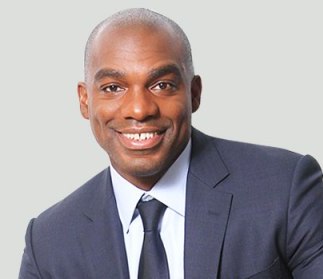By Zandre Campos – Chairman and CEO of ABO Capital

Africa is a young continent, with 60% of its people under the age of 25. As much of the rest of the world gets older in the decades to come, these youngsters have the potential to form a workforce for the planet, ushering in a new era of economic prosperity, shrinking inequality and societal progress. These gains can only be meaningfully realized, though, if young Africans are able to receive an education that is relevant, accessible and of high quality.
While Africa is home to some of the world’s brightest minds, quality education currently remains all too much of a rarity. Eight of the 10 countries with the world’s lowest literacy rates can be found on the continent, with nearly 87% of sub-Saharan Africa’s schoolkids being “learning poor” (unable to read and comprehend a basic text by the time they’re 10). This is, in part, because a whopping 105 million children of school-going age are not attending classes.
Educational infrastructure is sorely lacking too – even in South Africa, the continent’s most advanced economy, where over 3000 schools continue to use pit latrines instead of flushing toilets (tragically, in some instances children have drowned in these). 380 schools in that country also don’t have running water, while media reports of children forced to learn under trees persist.
The good news is that, while they might be daunting, none of the barriers to delivering a quality, transformative education to Africa’s children and young adults are insurmountable. This is particularly the case if all stakeholders – including government, civil society and business – work together.
Transforming education, bit by bit
- Bigger, smarter budgets: Roughly one in three African countries spends less than 15% of its annual budget on education. This slice of the pie needs to expand. Spending should also be carefully scrutinized to ensure efficient delivery, and the prevention of waste and malfeasance.
- Deft design that doesn’t break the bank: The Pritzker Prize-winning Burkina Faso architect Diébédo Francis Kéré has designed schools that are sensitive and relevant to their environment and affordable to build, using local materials and labor – and the rest of the continent should take note. Use of simple, cost-effective innovations like thick, rammed earth walls and clerestory windows can allow for enhanced ventilation and cooler temperatures, providing a cost-effective and sustainable alternative to expensive air conditioning – and creating an environment conducive to learning.
- Africa needs YOU!: By one count, 17 million more teachers are required for universal education to become a reality by 2030. African governments therefore need to aggressively recruit, train and retain a whole new generation of qualified teachers.
- From the basics to future-proofing pupils: Africa’s shocking literacy and numeracy rates offer a reminder of how important it is that mastery over reading, writing and mathematics needs to be urgently prioritized, particularly at the primary school level. However, the continent’s curricula also need to be modernized in order to empower school-leavers with the skills and insights they need to thrive in a rapidly-changing global economy.
- Partnerships with the private sector: One of the best ways to learn is through experience – especially when it comes to business and entrepreneurship. Government education ministries and schools themselves should partner with businesses big and small to offer secondary schoolers and school leavers work experience, internships and mentoring.
- The mobile revolution: Sub-Saharan Africa has nearly half a billion cellphone subscribers (this is projected to hit 615 million by 2025); in much of the continent, cutting-edge solutions such as mobile payments are ubiquitous. Governments should leverage this widespread mobile penetration: with partners, they should co-create technology-enabled education that both increases accessibility (especially for children far away from bricks-and-mortar schools) and equips learners with technological literacy. Tech solutions can be homegrown and affordable – as the South African non-profit School in a Box proves, which has deployed its educational tablets to over 130 learning centers in three countries. Another example, the Complexo Escolar Privado Internacional (CEPI) School in Angola has started using a virtual classroom platform for their 1200 students in K-12. This platform, which can also be used as a Content Management System, contains individual student logins and can be used effectively before the start, during and after the Virtual Classroom Session is completed.
- Learning every day of the year: Rather than only being utilized during term time, school campuses should be transformed into educational hubs that offer adult education, extramural classes and skills “bootcamps” to the community on weekends and during school holidays.
Africa’s experience of the COVID-19 pandemic – in which over 90% of children had their education disrupted due to school closures – also showed us that, when the technology is available, learning can be done anywhere and at any time. We need to disrupt the education process using technology to facilitate remote and asynchronous learning, and create a system that can meet the needs of Africa’s population.
It’s clear that with creativity, collaboration and courage, Africa can fundamentally transform its education – and, in turn, its youth, and economy – for the better. We have the solutions at our fingertips – now, let’s get to work!
Zandre Campos is one of the great, innovative business leaders and global entrepreneurs emerging out of Africa. Currently, he is chairman and CEO of ABO Capital, an international investment firm that builds opportunities in emerging markets across Africa. Campos was named one of the Top 25 African business influencers and was a recipient of the Distinguished Business Excellence Award by African Leadership Magazine and the Africa Award by CEO Magazine. An advocate for bringing better education and technology to Africa, Campos is frequently quoted as an expert on Africa in the media and has spoken at leading industry conferences around the world.

